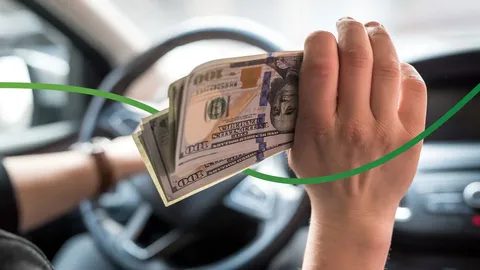EV Incentives and Rebates
If you are thinking about purchasing a new plug-in hybrid or all-electric vehicle, there are a number of incentives and rebates that will help drop the cost of the vehicle. These EV incentives are available for federal, state, and local credits. These government-offered rebates were created to promote the sale and ownership of electric vehicles. According to the U.S. Energy Administration, 76 percent of all oil consumed in the United States is used to fuel gasoline-powered vehicles.
The electricity used to power EVs is mostly produced by domestic electric companies through the use of coal, natural gas, and renewable sources such as wind and solar power. By using diverse energy sources, America is able to maintain a more stable energy infrastructure and cut our dependence on foreign oil.
Federal EV Tax Incentive
The Federal government in the United States gives you tax credit when you purchase a plug-in hybrid or all-electric car.
You can take up to $7,500 off the cost of the vehicle just from this one EV tax credit alone. But your vehicle has to qualify: In August 2022, Congress passed new legislation – the Inflation Reduction Act of 2022 – which changes credit amounts and eligibility requirements for clean energy vehicles, including electric vehicles and plug-in hybrids.
Under the new provisions, up to $7,500 is available for new electric vehicles , and there is now a credit of up to $4,000 for used electric vehicles, which can make buying an EV even more affordable for some drivers. However, price caps are in place: passenger cars priced at over $55,000 and vans, trucks, and SUVs priced at over $80,000 are no longer eligible for credits.
Under the new Act, only vehicles whose final assembly is completed in North America qualify for clean energy vehicle credits. This means that many vehicles that previously qualified for clean energy incentives are no longer eligible.
Further complicating the issue is that some models are built in multiple locations, meaning some vehicles of the same nameplate meet the final assembly requirement, while others do not. The Department of Energy has a list of model year 2022 and early model year 2023 electric vehicles that may meet the final assembly requirement here (https://afdc.energy.gov/laws/inflation-reduction-act).
Don't forget that there are state and local EV incentives and rebates that you can add to your savings.
State EV Incentives
Each state has different rules for the EV tax credits they offer based on eligibility. Some of the most EV-friendly states that offer EV incentives include Colorado that offers $2,500 toward the purchase of an EV. Connecticut will give you $2,000. Delaware offers rebates of $1,500 when you buy a plug-in hybrid and $3,500 on a new all-electric vehicle. Maryland pays you a rebate based on the size of the battery pack with a cap of $3,000. California gives you a $2,500 rebate for all plug-in hybrid and all-electric vehicles, Massachusetts offers $1,500 for plug-in hybrids and $2,500 for all-electric vehicles. Oregon hands out a cash rebate of $2,500 for purchase or lease of a plug-in hybrid or all-electric car.
You’ll find a complete list of states providing EV incentives here: https://afdc.energy.gov/fuels/laws/ELEC
Other EV Incentives
You’ll also find other EV incentives on the price of kilowatt hours based on local utilities. Many electric utility companies offer rebates and special incentives to EV owners. You’ll also find discounts on electric vehicle charging at local charging stations. Look for savings on EV charging in your town.
To find out which specific EV incentives you qualify for on a particular vehicle, visit our EV Incentives Tool.
















